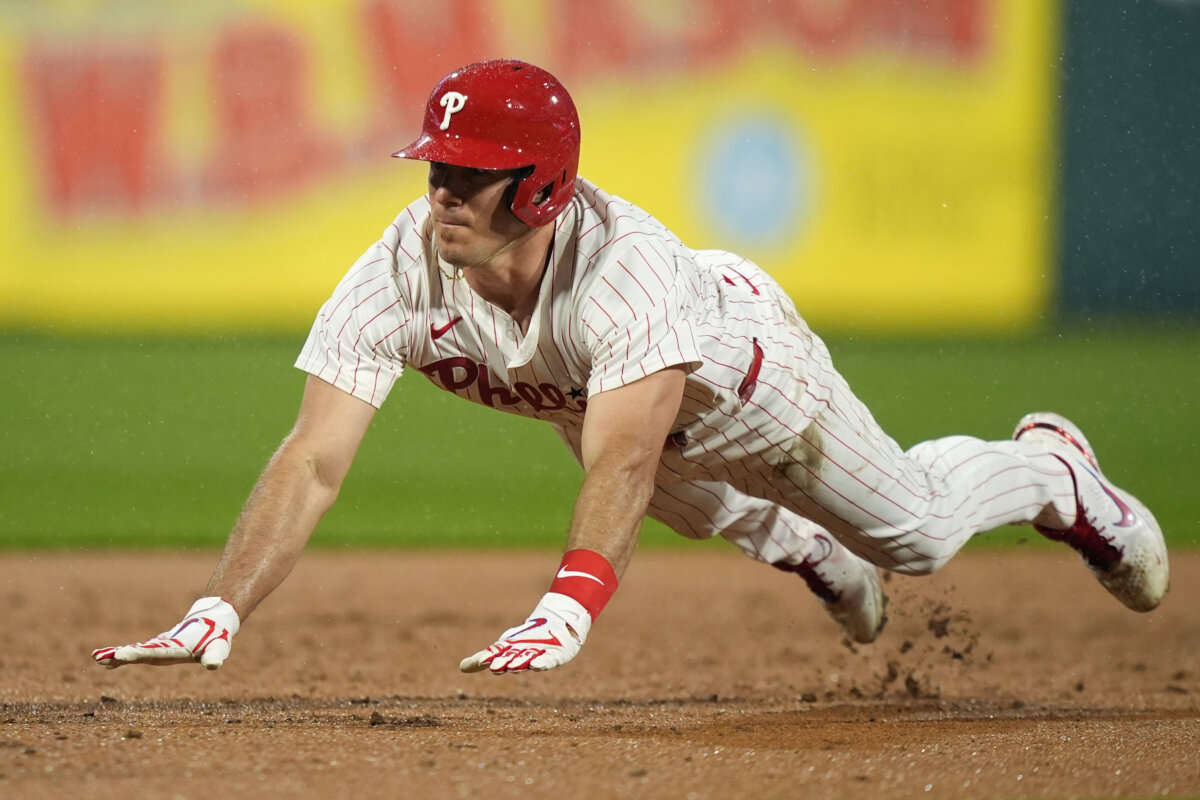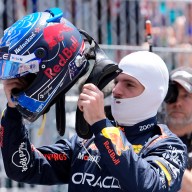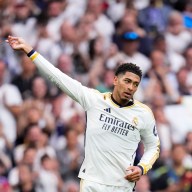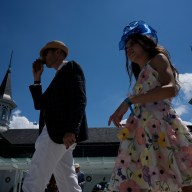With the greatest of all time, there is little doubt. You just know.
Michael Phelps, greatest swimmer, without question.
Michael Schumacher. Emphatically, Formula One’s most successful driver.
But Roger Federer? Tennis’ greatest? Above Rod Laver or Pete Sampras?
That’s the acid test that Federer still fails, even after he put us all out of our misery by winning the French Open on Sunday, at last.
It was cathartic to see him finally bury that clay-covered bogeyman. But it wasn’t the final word.
Great, very great, extremely great, call him what you will. But Federer is still, for the moment, only potentially the greatest.
Laver, not once but twice, managed a feat that still eludes Federer: winning all four Grand Slams in a calendar year.
OK, so the competition wasn’t as fierce in 1962 and 1969 as it is now. Nor did Laver contend with the mix of surfaces upon which Federer inspires such awe. In Laver’s time, the Australian and US majors were played on grass. The left-hander, with his quaint wooden racket, would likely have been blown off court by today’s power-hitters, Federer included.
Then again, Laver played in the era before tiebreakers tweaked the sport’s dynamics. Federer will never be subjected to the 7-5, 22-20, 9-11, 1-6, 6-3 grilling that Laver survived against Tony Roche at the Australian semifinals in 1969, where they cooled off by stuffing their hats with wet cabbage leaves.
Had Laver, then in his prime, not been kept out of Grand Slams from 1963 to 1968 because he had turned professional then he almost certainly would have had an even larger chapter in tennis history books.
As it was, Laver won 11 Grand Slam singles titles. To truly lock up the “greatest” title, Federer needs to leave Laver further behind in his rearview mirror.
Sampras, too, shortchanged himself this weekend by declaring after the Swiss flag was hoisted in a stiff Paris breeze in Federer’s honour that “he goes down as the greatest ever.”
After all, Federer has merely matched, not broken, Pistol Pete’s record of 14 major singles titles. Sampras also spent more weeks as No. 1 than Federer has so far.
Sure, Federer has been quicker to reach 14 majors, needing about half the time it took Sampras. But that also shows how remarkably tenacious Sampras was. He stayed at the top for so long.
Sampras’ best in Paris was a solitary semifinal in 1996; his game and mind always got clogged on the French clay. So, in winning the French to complete a career Grand Slam, Federer clearly has one-upped the American.
But look at the quality of opponent Sampras faced in his career – John McEnroe, Boris Becker, Ivan Lendl, Andre Agassi and, toward the end, Federer. All tennis legends in their own right.
Beating the likes of Robin Soderling, Tommy Haas, Juan Martin del Potro or Gael Monfils, as Federer did – sometimes laboriously and, against Haas, by the skin of his teeth – to win his first French somehow doesn’t seem quite the same.
At 27, Federer still has time and the ambition to win more majors than Sampras.
But, ultimately, the greatest test for Federer boils down to one man: Rafael Nadal. He, as much as Federer, could have the final word on just how great the Swiss master is.
Were it not for the Spaniard, Federer might have had one or two calendar-year Grand Slams by now and the “greatest” label would unequivocally be his.
But instead, largely because of Nadal, Federer is still just shy of being all the way there.
Federer has won only seven of their 20 encounters, and only twice of eight times at Grand Slams. Federer has never beaten Nadal in Paris. On other surfaces, Nadal has adapted better to Federer’s game than vice versa. He helped tilt the “greatest” needle away from Federer by winning last year’s epic Wimbledon final.
So let’s hope that Rafa’s rickety knees hold up because, when their careers are done, the final measure of greatness for them both may not simply be a matter of majors won, but how they fared against each other.
–
John Leicester is an international sports columnist for The Associated Press. Write to him at jleicester(at)ap.org
















